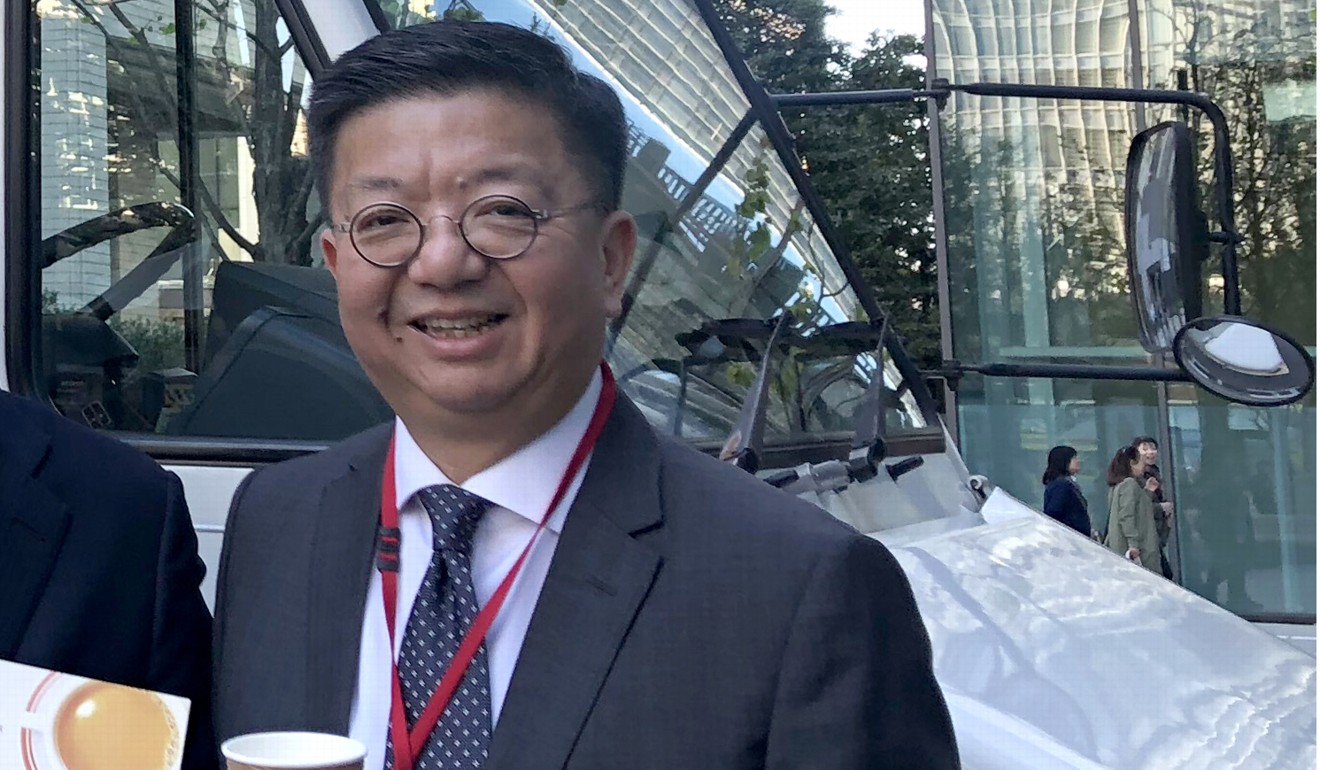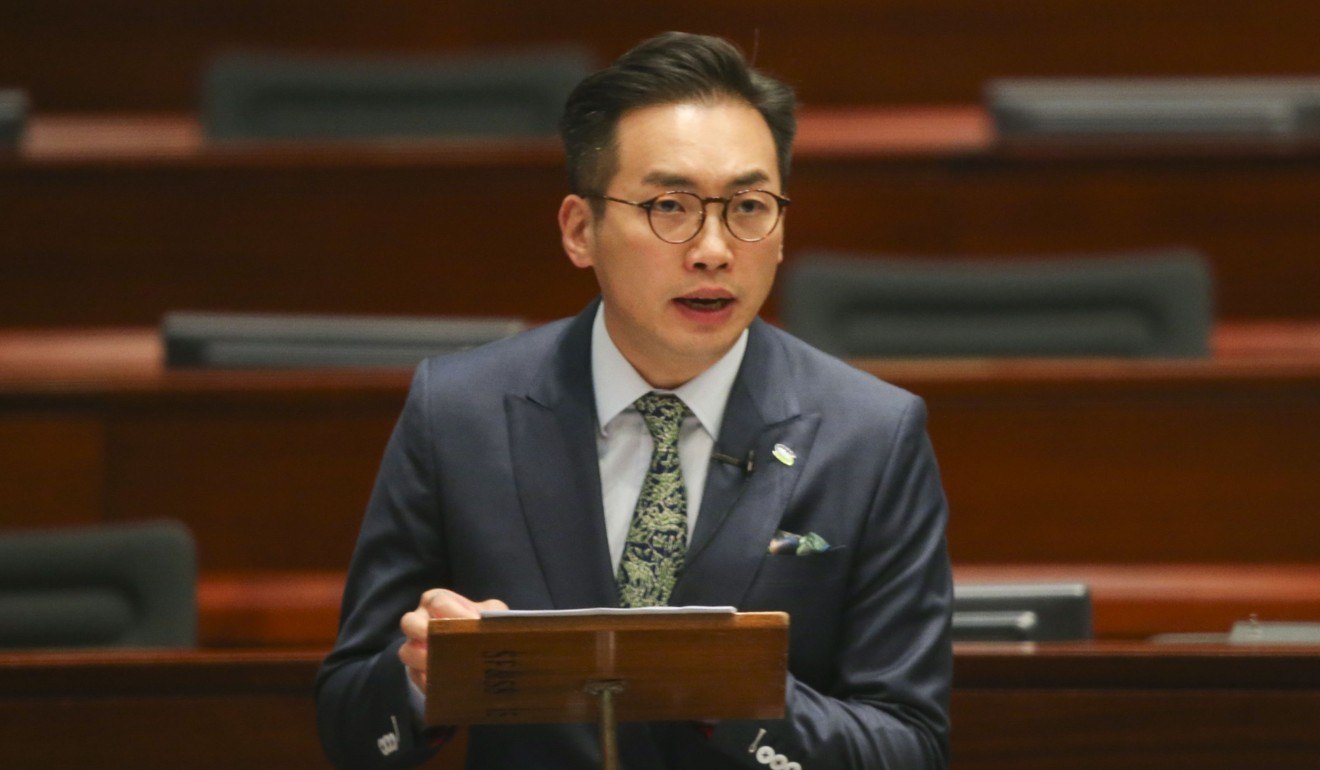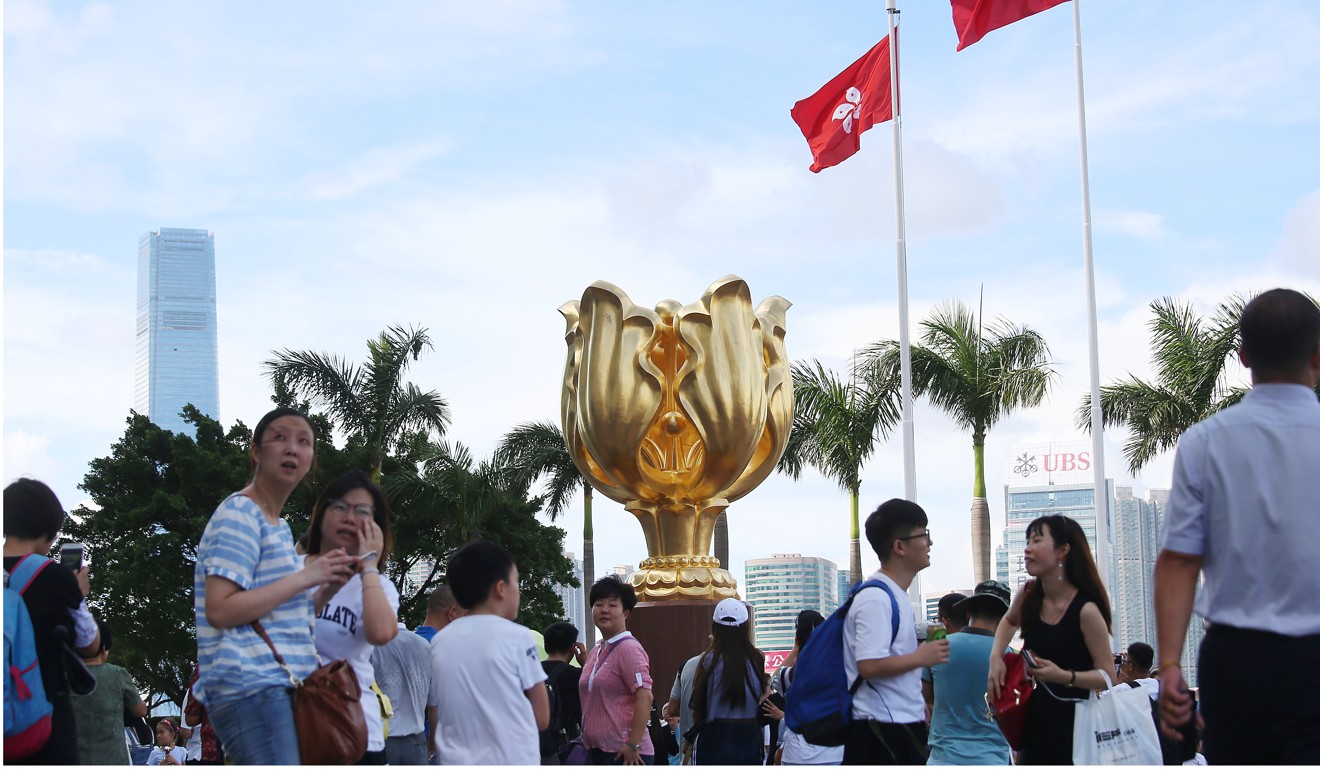
Tourism Board touts Hong Kong as international aviation gateway for China’s ‘Greater Bay Area’ scheme – but dismisses concerns visitors will head away sooner
- Tourism Board executive director Anthony Lau highlights opportunities for developing tourism products for project
- Authority is also planning to transform one local district into neighbourhood for tourism
Hong Kong could serve as an international aviation gateway for the emerging “Greater Bay Area” project in south China, the Tourism Board said on Monday, while dismissing concerns that more convenient travel would result in visitors quickly heading out of the city.
The board’s executive director Anthony Lau Chun-hon highlighted the opportunities for developing tourism products for the bay area at a meeting of the Legislative Council’s economic development panel a week after the authority rolled out its work plan for the year.
Among the board’s focuses are attracting overnight travellers, and leveraging on Beijing’s vision to turn Hong Kong, Macau and nine cities in nearby Guangdong province into an integrated economic and business powerhouse to rival Silicon Valley.

Civic Party lawmaker Alvin Yeung Ngok-kiu questioned whether focusing on the bay area might discourage visitors from staying overnight.
“The Greater Bay Area has flaunted its ‘one-hour living circle’ whereby travellers can go to other cities within an hour of arriving in Hong Kong. But you also want overnight visitors. I want to learn the logic behind the strategy,” Yeung said.
But Lau said cooperating with nearby cities to promote the bay area to travellers could work. He said 96 per cent of long-haul travellers visited Hong Kong on an individual basis and the trade could develop products to allow them to visit other cities.
City has certain level of freedom in ‘Greater Bay Area’ plan, Nip says
“We hope to use Hong Kong as an international aviation hub and leverage on the attractiveness of the whole Greater Bay Area to bring in long-haul visitors to Hong Kong and make the city a stop for interchange,” he said.
Lau added the idea was similar to tourism products in New York, where visitors could join trips to cities such as Atlantic City, Boston and Washington.

Aside from reaching out to the Greater Bay Area, the authority is also planning to transform one local district into a neighbourhood for tourism by the end of this year or in the first quarter of 2020. Lau said the board was looking into two to three ideas.
Bay area plan should be a plus for tourism
At the same meeting, Democratic Party lawmaker Andrew Wan Siu-kin expressed concern over the usage of idle land earmarked for the future expansion of the Hong Kong Disneyland theme park. He wondered whether the 60-hectare plot could be used for other purposes such as building transitional housing.
Edward Yau Tang-wah, secretary for commerce and economic development, said the land lease did not allow building such homes there, but officials were considering whether to use the site for other purposes and had received some proposals over it.

The Lantau Island theme park, of which the government is the majority owner, in 2018 posted a loss for the fourth year running, recording a deficit of HK$54 million (US$6.9 million).
Tourism sector lawmaker Yiu Si-wing questioned whether the government could ask parent company Walt Disney to waive or cut its management fees if the park failed to break even in the coming years. He also asked whether the park’s poor financial performance would halt its planned second phase development.
Yau said officials would consider the situation if there was a new round of negotiations over the contract with the company, adding that it would be too early to discuss the second phase development because it involved a lot of factors for consideration.

